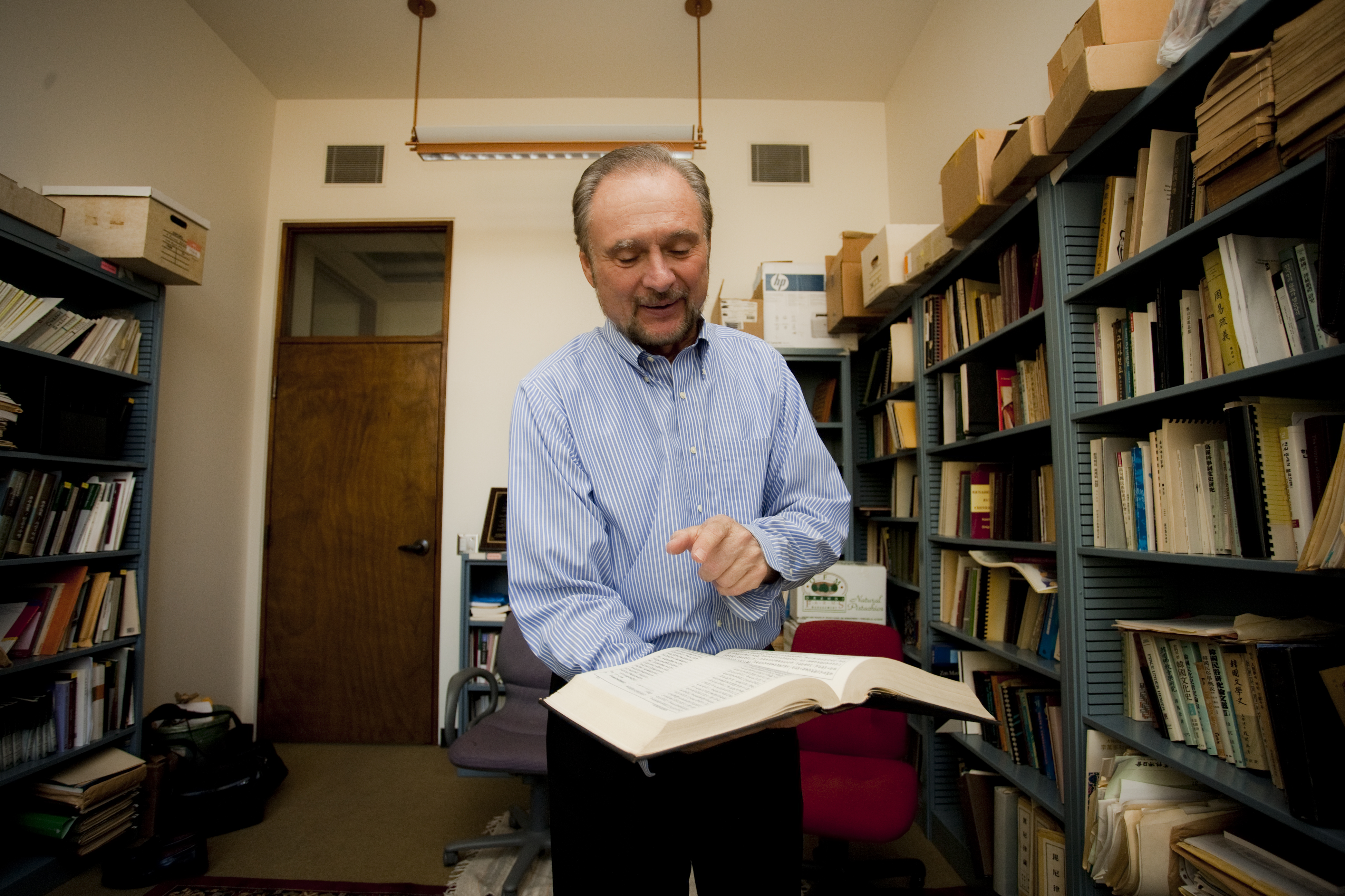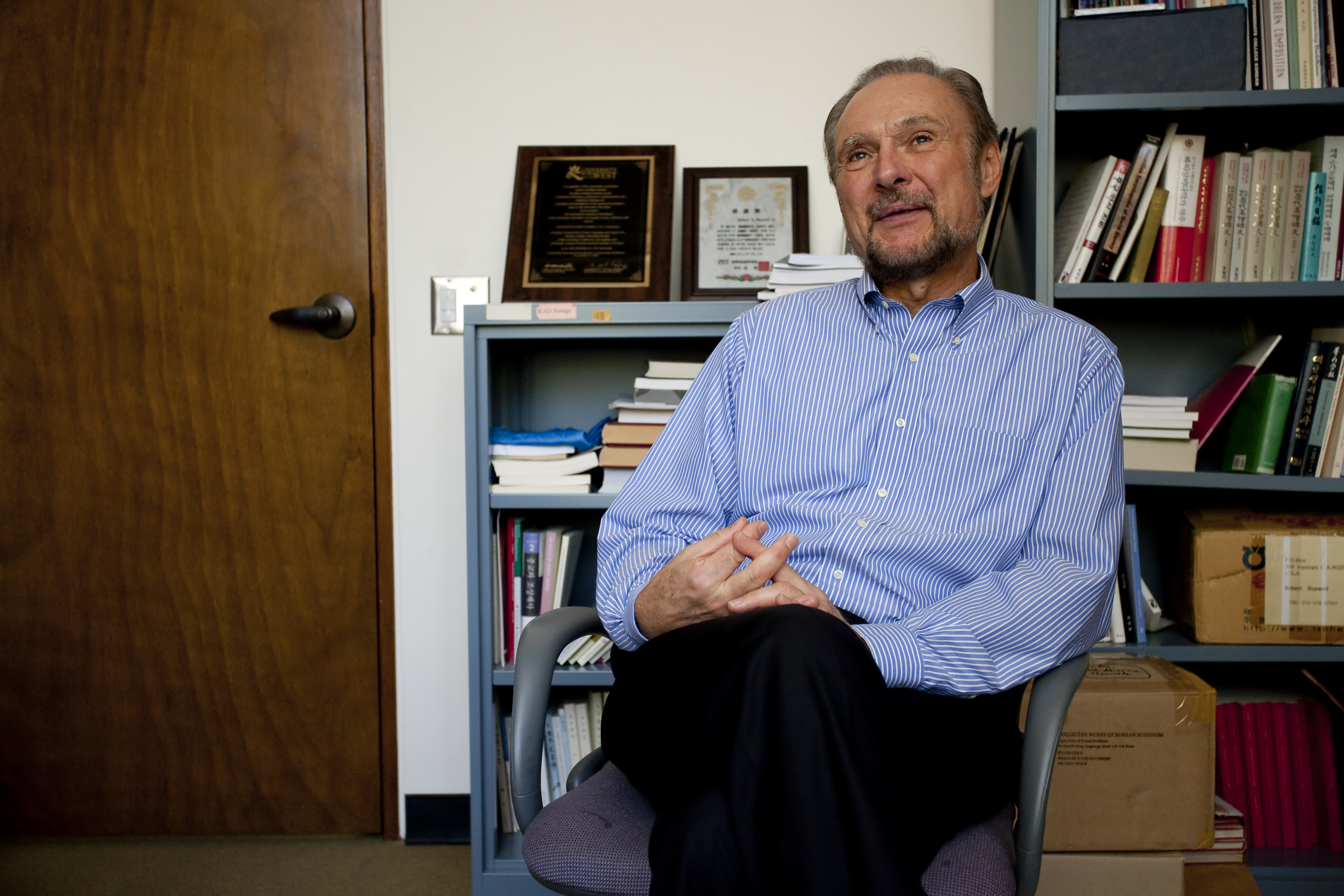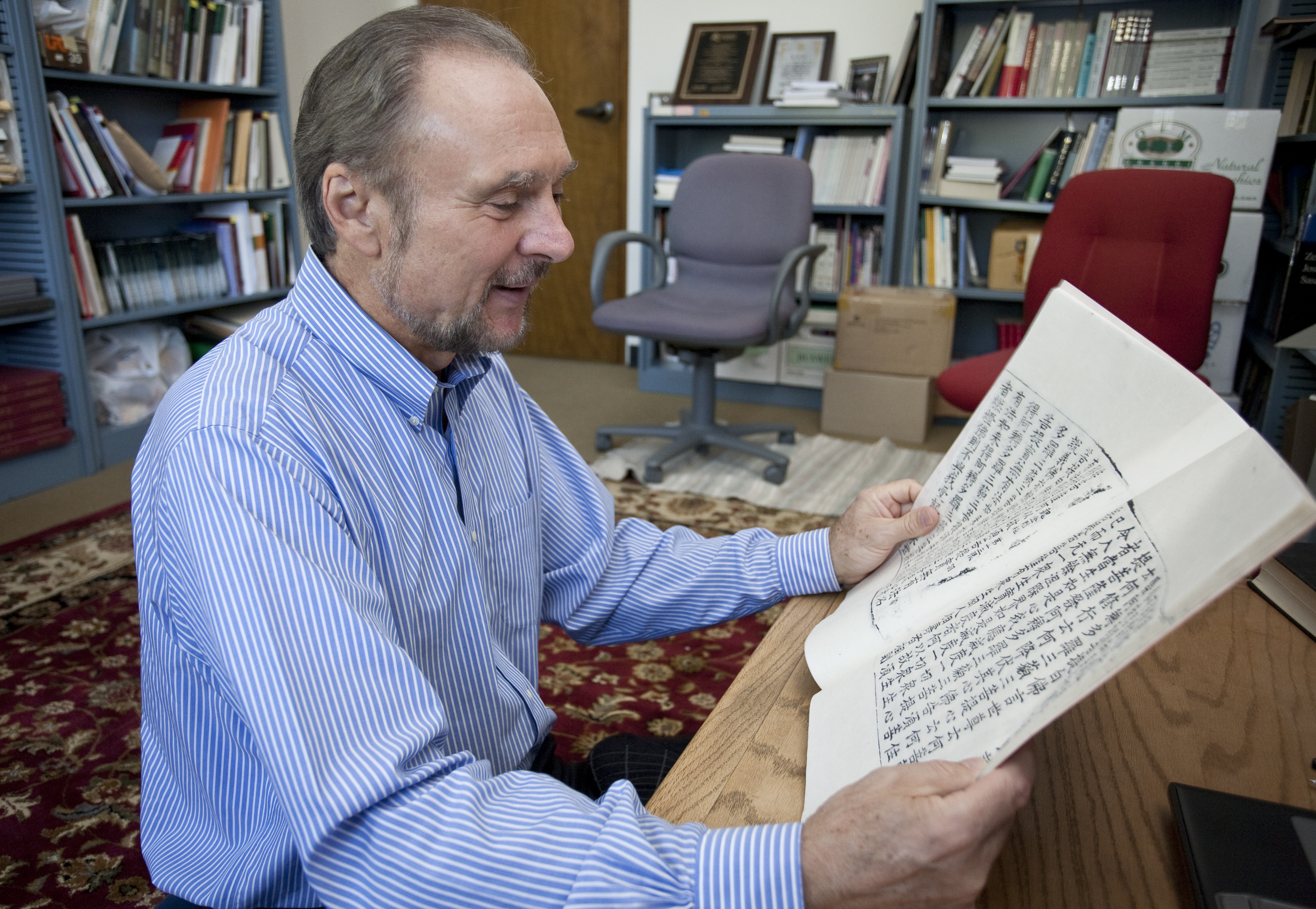

Brushing dust off a thick, bound 14th century volume, Professor Robert Buswell stood in his office, surrounded by a chronicled literary history of ancient Buddhist culture.
“Sorry if it’s messy in here,” said the director of the UCLA Center for Buddhist Studies with a smile, looking around at the room, adorned with vibrantly colored rugs and pillows.
But Buswell’s knowledge of Korean Buddhist studies, which he teaches at UCLA, goes beyond just literature ““ it is based heavily on his experiences as a Buddhist monk in Eastern Asia years ago.
Buswell was born and raised in Palos Verdes, Calif. His family was not religious, but he developed a strong interest in philosophy after studying it briefly in high school ““ an interest that carried through his college days at UC Berkeley.
“(Western religions) didn’t offer the techniques that Buddhism had ““ and that’s what intrigued me (about Buddhism),” Buswell said.
He started taking Sanskrit, Chinese and Korean language classes in his junior year of high school.
Buswell, driven by his fascination for Buddhist culture, took a break from his undergraduate studies at Berkeley to travel abroad and further his interests, starting in Thailand, where he stayed for a year.
Buswell’s passions then led him to Hong Kong, where he spent another year, training and honing his mental skills with Chinese monks.
As a monk, he spent his days meditating, while also focusing on private study and concentration.
“When you’re living a monastic life, it’s an intense life … meditation sitting for about four to six hours a night,” Buswell said. “As a Westerner I needed to learn more about the culture ““ there was nothing in English about the tradition.”
He spent about five years in Korea, which proved to be a defining point in his life.
Knowing just enough Chinese to function and picking up Korean along the way, Buswell said his experiences as a monk gave him an enriched understanding for both the languages and the cultures that accompany them.
“(Traveling in Asia) was where I picked up my knowledge ““ anyone who wants to learn a language well needs to go to the country,” he said.
Returning to Berkeley as a junior student in 1979, Buswell said the transition back to urban life was shocking, but not in the ways one might expect.
“I remember one thing that struck me when I got back is that your feet never touch the soil,” he said. “Most monasteries (in Asia) are way back in the deep mountains and forests, with a river running nearby. … The biggest change was suddenly being in the middle of crowds of people.”
He also realized how little the Western world knew of the experiences he had collected over the span of seven years in the field of Korean Buddhism. He has since written books about monastic life, as well as sharing his knowledge as a scholar at Berkeley, Stanford and UCLA.
UCLA is one of the only institutions to offer comprehensive Korean studies outside of Korea, particularly in the field of Korean Buddhism, said Sejung Kim, assistant director of the UCLA Center for Korean Studies.
“(Buswell) is the one who introduced (Korean Buddhism) to the non-Korean world,” Kim said. “(The field) is (still) in its early stages, so people often lack sources to study, unless you are fluent in both Korean and classical Chinese.”
Most recently, Buswell completed translating the first English version of the “Collected Works of Korean Buddhism,” a 13-volume compilation of original Korean Buddhist materials, written in classical Chinese.
“Each character is wood-blocked,” Buswell said, propping the original volume on his knee to point a finger at a line of Chinese characters on the page. “Someone had to (individually) stamp out each (character) with a block of wood and the paper.”
There are 81,000 woodblock prints within the manuscript that comprises the Korean Buddhist canon, he said. This complex quality makes him think of Korean Buddhism’s 1,700-year-old history, he added.
Korean Buddhist studies at UCLA is what drew Seong-Uk Kim to Westwood from Korea. He was one of the doctoral candidates that helped Buswell to translate the text, assisting in some of the translations for supplementary texts, he said.
“(Buswell) is a master in Korean studies,” said Seong-Uk Kim. “He knows everything. … It was a great learning experience to be able to work with him.”
Buswell said he is continually inspired by the philosophy of Buddhism, which is primarily concerned with trying to counteract the defilements of the mind.
“(Our) goal as Korean Buddhist monks is to build on the inherent effulgence of the mind ““ letting brightness of mind develop itself,” he said. “I believe (Buddhism) is one of the major achievements of human culture.”
